Holes in the Pockets
Aleja wakes up very early in the morning, as she does every Saturday, to go to the market and buy the groceries for the week. She takes with her the same amount of money she usually does, but to her surprise she can’t even buy half of the things she needs.
At home, Aleja has five small children waiting for her to bring them something to eat. She is a single parent, mother of two sponsored children from Betel Student Center in the city of Oruro. She was abandoned by her husband and left with her children.
The family lives in a very small and dark room where they have three beds, a small table, some chairs and a small, wrecked shelf. Outside of the room, they use a small space covered with old pieces of calamines as their kitchen.
Aleja works washing clothes. She earns around $21 per week, and that is how she supports her family. She uses the money to pay the rent, the water, the electricity, the gas and buy the food and some things her children need for school. (more…)
Continue Reading ›Highly Vulnerable Children: What Special Needs Do They Have?
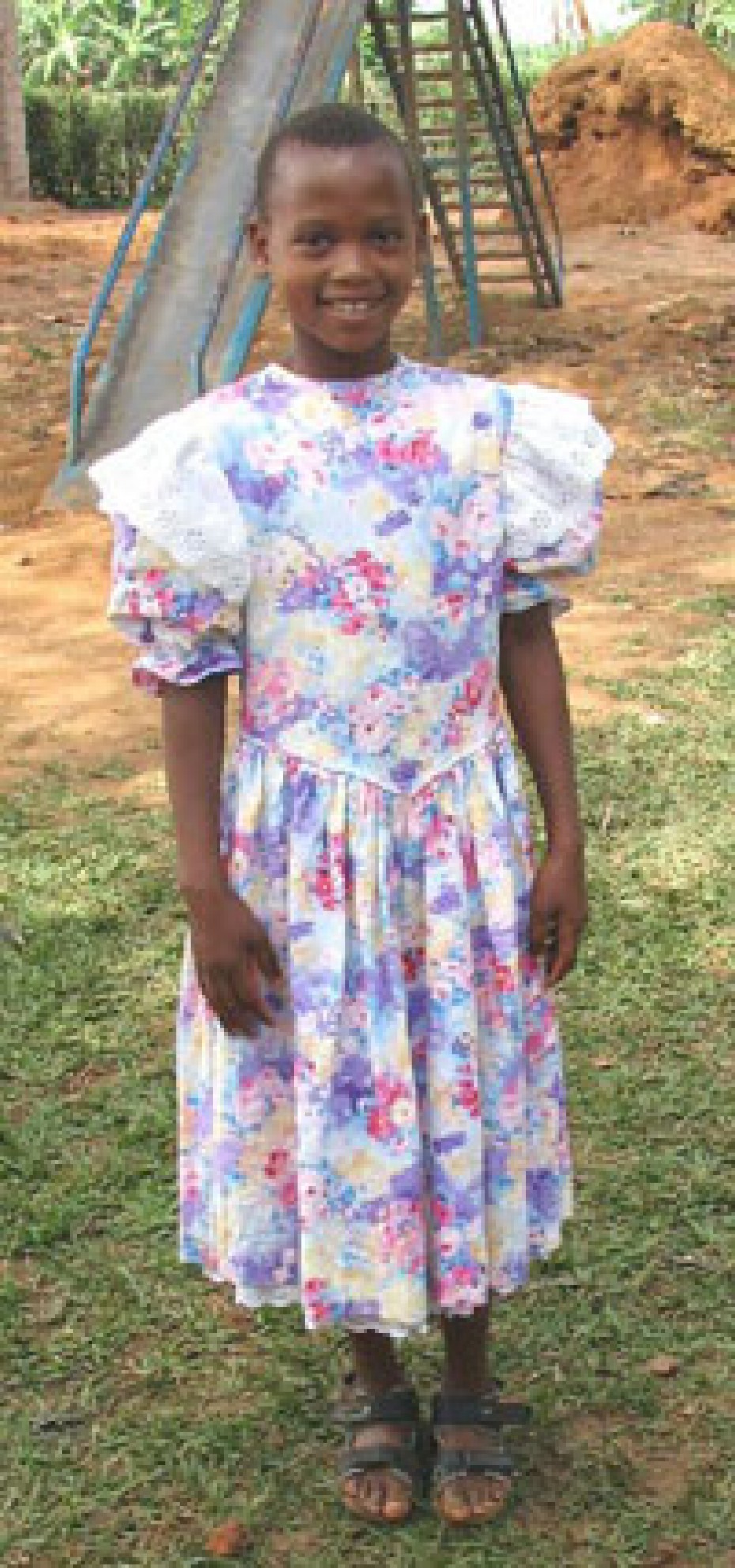
Highly vulnerable children in our programs are children at greatest risk of physical, psychological or social harm relative to other children in our child sponsorship program.
Continue Reading ›Complementary Interventions With Heidi Partlow
The first thing Heidi Partlow does each morning is check her e-mail. It’s always packed. As Compassion’s complementary interventions manager, she gets all kinds of e-mails each day.
E-mails about how to submit a proposal for a complementary interventions (CIV), e-mails from marketing departments about the particulars of a CIV, e-mails about a disaster that has just occurred.
So her e-mail inbox pretty much dictates her day. After attacking the onslaught of messages each morning, she has a cup of tea at 10 o’clock.
Then she spends a lot of time running around, especially during a week where there has been a crisis, like with the recent hurricanes, getting approvals for funds to be distributed.
But she slowed down enough to give us a peek into CIV and her world. (more…)
With God All Things Are Possible
Hey! I have new photos of Amisi. I was so blessed to meet him on my trip to Uganda last month.
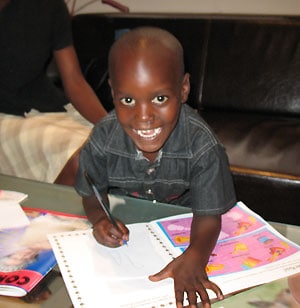
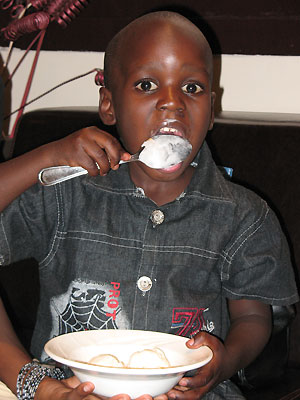
I was told the outfit he’s wearing, along with his shoes and socks, were purchased through the Christmas Gift Program.
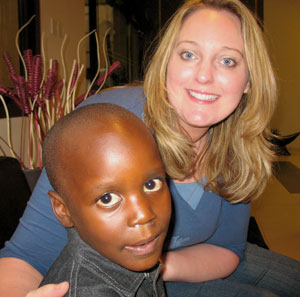
During my visit, I also gave him a banner that says, “With God, all things are possible.” As he grows up, I hope he clings to this message. I can’t wait to see how God works in his life. He may be living in a poverty-stricken African village now, but with God, the possibilities for his life are endless.
Have you visited your child? I’d love to hear about it. Leave a comment and tell me!
And if you have any photos, add them to our Flickr group. Be sure to include brief descriptions and I’ll share some of them here in a few days!
A Mosquito Bite Away
One of the things that shocked me when I visited Uganda last month was finding myself scared to death of mosquitoes. It was the strangest feeling to be afraid of something so small — something we usually think of as just a pest. But in Africa mosquito bites don’t just make your arm itch — they kill.
Malaria, which is transmitted by infected mosquitoes, is killing one million people a year. Most of these are children under age 5 in Africa. That’s right. Malaria, which is preventable and treatable, is killing more than 750,000 children a year in Africa.
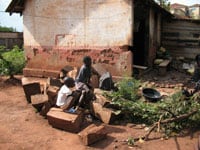 Before visiting Uganda, I never really understood how mosquitoes managed to claim so many lives. But when I visited homes there, I understood. Many of the houses don’t have doors — just sheets covering the openings. And the windows are usually bare, too. So at night, the mosquitoes help themselves.
Before visiting Uganda, I never really understood how mosquitoes managed to claim so many lives. But when I visited homes there, I understood. Many of the houses don’t have doors — just sheets covering the openings. And the windows are usually bare, too. So at night, the mosquitoes help themselves.
Catherine, a single mother I met in Uganda, told me that before Compassion gave her an insecticide-treated mosquito net, she did everything she could to protect her 10-year-old daughter, Irene. But her efforts were in vain.
“Every night, I tried to cover Irene with a blanket, but she would still get bitten all night long,” said Catherine. “I wanted so badly to buy her a net, but I couldn’t afford it.”
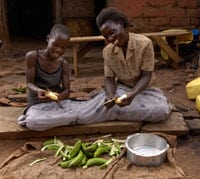 And when Irene got malaria, Catherine certainly couldn’t afford doctors’ bills. “Before Compassion, I would go pleading to doctors for help and beg to pay later,” she said.
And when Irene got malaria, Catherine certainly couldn’t afford doctors’ bills. “Before Compassion, I would go pleading to doctors for help and beg to pay later,” she said.
Thank God that Compassion intervened! Through the ministry’s Complementary Interventions Program, Irene is now getting medicine and sleeps under a quality net. Today, she’s healthy and thriving.
You can make a difference and help protect vulnerable children like Irene! Since today is World Malaria Day, take a minute to learn more about this disease and see how you can join the fight!
Inside Uganda With Jessica Masanganzira
If you’ve been following our 15 Christian bloggers on their trip to Uganda you’ve seen only a glimpse of what it’s like to live in extreme poverty. It’s an outside view of Compassion’s ministry.
Today we begin a series of blog posts from staffers of Compassion Uganda who will give you an inside look into how Compassion’s ministry operates among the poorest of the poor.
What happens if a sponsored child needs an expensive operation? Or if his home is destroyed by a natural disaster? That’s where Compassion’s Complementary Intervention (CIV) program comes in.
CIV seeks to strengthen the ministry’s core programs by providing for needs that go above and beyond child sponsorship. CIV includes a number of ministry areas, including the AIDS Initiative, the Medical Fund, and Disaster Relief.
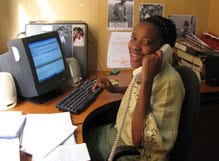 Jessica Masanganzira is the CIV Administrator for Uganda, and she is able to daily provide for the needs of children and church partners in this poverty-stricken country.
Jessica Masanganzira is the CIV Administrator for Uganda, and she is able to daily provide for the needs of children and church partners in this poverty-stricken country.
I have seen many successes in the CIV program in Uganda. The water program, for one, has helped many communities here, and it has contributed a lot towards improving the health of the children and immediate families.
In the Mulatsi Child Development Center, for example, an average of 32 children each month had diarrhea infections and abdominal pains due to the consumption of contaminated water. After installation of the borehole (a kind of well), medical expenses reduced by 23 percent, distances children traveled to fetch water reduced from 5 to 2 kilometers, and their classroom grades improved by 13 percent to date.
Another CIV project that has had great success in Uganda has been the nutrition training we have provided for children and caregivers. As a result of poverty and low levels of education, inadequate feeding, and lack of knowledge on children’s nutritional requirements, there is a high rate of malnutrition among newly registered children.
On average, 28 percent of children are reported malnourished and yet Compassion cannot continually provide nutritional support for all. Some families can barely afford a single meal a day and only get a reasonable meal only on center days at the project. This was hindering health, social and emotional development.The practical nutrition trainings and demonstration projects have led to improved health among children.
In one of the benefiting projects, Kisoro Child Development Center, malnutrition has dropped to 12 from 68 cases in a period of one year. Children and caregivers learned the nutrition requirements for children, trained in modern farming and animal-rearing methods, food preservation and storage to cater for dry seasons; horticulture and fruit growing, too, have been promoted at the projects and in children’s families.
I pray that CIV will continue to eliminate key child development barriers for the families in our programs. As we are educating and helping children and families, I believe we are changing our whole country. CIV works!


